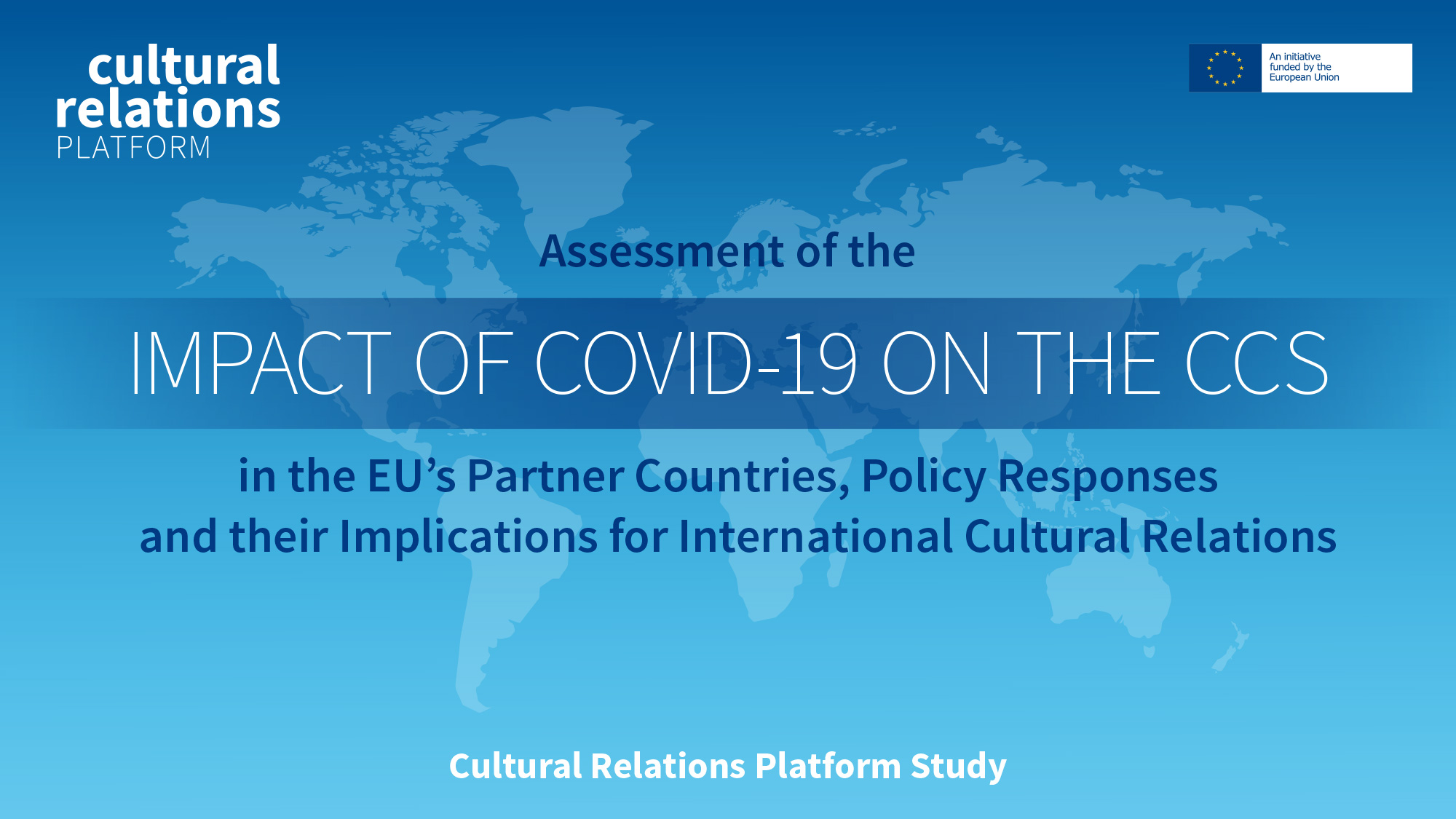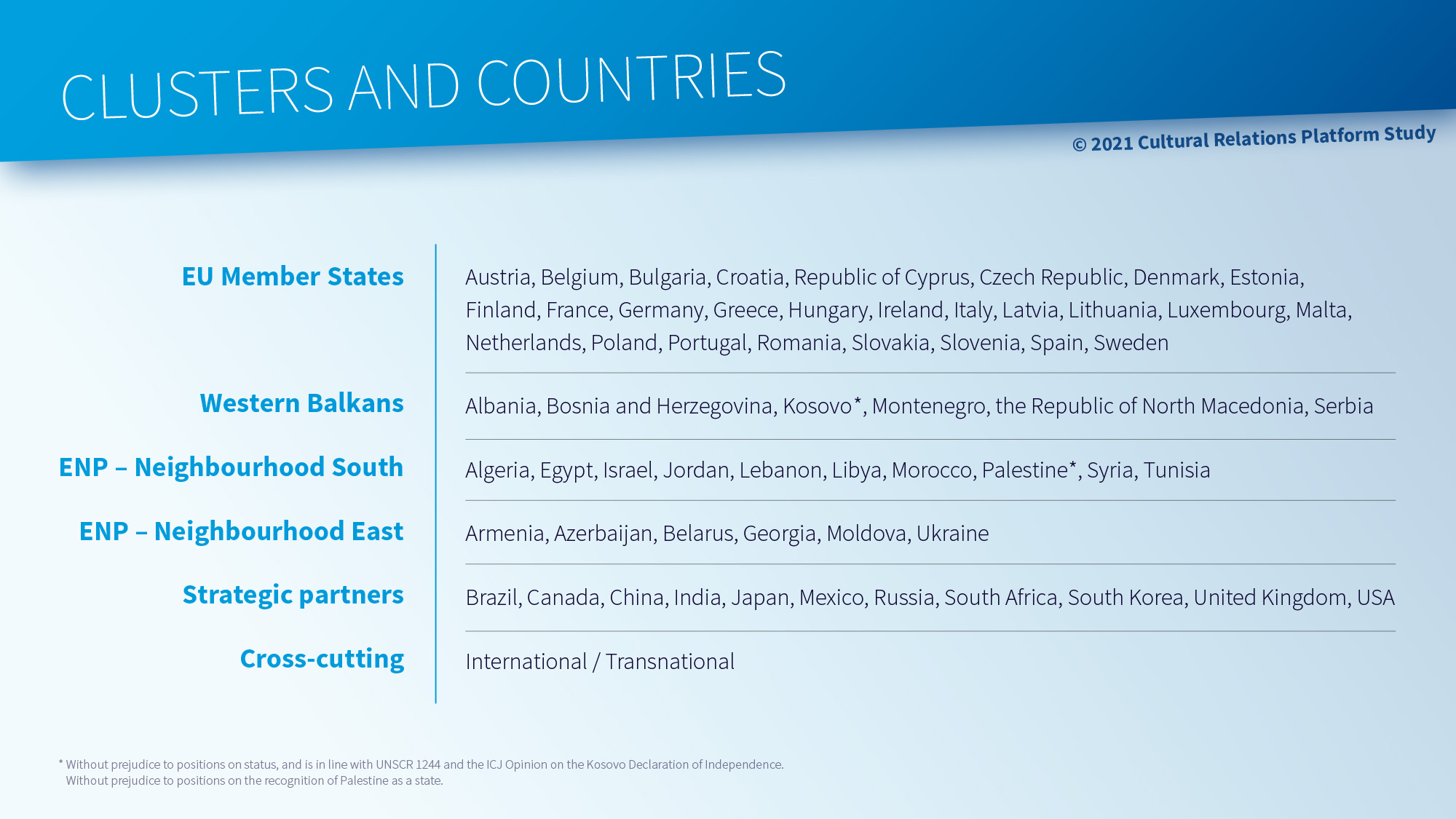Impact of COVID-19 on CCS in Partners Countries

Assessing the Impact of COVID-19 on Cultural and Creative Sectors in the EU’s Partner Countries
The COVID-19 pandemic has deeply impacted economies, societies and political systems worldwide. Culture as a sector and international cultural relations have not been exempted either. Indeed, the social, political and economic characteristics of the pandemic have had deep implications for culture and its role in international relations.
In May 2020, the Cultural Relations Platform launched a study to analyse and assess the impact of the global pandemic on the cultural and creative sectors (CCS) in partner countries – the Neighbourhood (South and East), the Western Balkans, and the Strategic partners – and on their capacity and willingness to conduct international relations.
The study is divided in five chapters as follows:
- An assessment of the impact of COVID-19 on the CCS in partner countries;
- An analysis of the policy responses put in place by state and non-state actors;
- A set of case studies which offers a short overview of the impact of COVID-19 and a description of policy responses in eight countries: Ukraine, Serbia, Morocco, Tunisia, United States, Brazil, China and India;
- A short analysis of the digitization process operating in the cultural sector in all partner countries;
- A conclusion on the support to international cultural relations during the COVID-19 pandemic
The study has also done an inventory of available studies, reflections, recommendation and data collection developed at the early stage of the pandemic on the impact of COVID-19 on culture and creative sectors and cultural relations. These data were compilled in one annex to the report that you can download here: CRP_Study_Annex

This publication was produced with the financial support of the European Union. Its contents are the sole responsibility of the Cultural Relations Platform and do not necessarily reflect the views of the European Union. The research was conducted by Professor Pierangelo Isernia and Alessandro Giovanni Lamonica (DISPOC, University of Siena) with the support and inputof seven regional experts: Tetiana Biletska, Milena Dragicevic Sesic, Fatin Farhat, Pedro Affonso Ivo Franco, Moukhtar Kocache, Mourad Sakli, Anupama Sekhar.